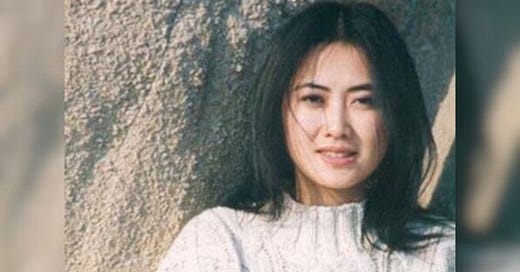Xi Mingze, Harvard, 2014
The Trump administration is spot on in its decision to slow foreign-born students' arrival on F-1 student and M-1 vocational visas. The administration has halted scheduling of new student visa appointments at U.S. embassies abroad as the State Department prepares to expand social media vetting of foreign students. Secretary of State Marco Rubio recently announced that the U.S. would "aggressively revoke" some Chinese students' visas, especially those enrolled in sensitive courses of study or with CCP ties. Future visa requests from China and Hong Kong will be more diligently vetted. Immigration officials are revoking dozens of student visas, with many more cases going unreported at small colleges anxious to avoid federal scrutiny. The battle between the administration and America's oldest university has entered a new front.
More than 1.1 million international students are enrolled at America's academic institutions. At Harvard, the administration's focal point in its battle on behalf of fairness for U.S. high school applicants and intensified national security, about 27% or 6,800 of the student body is foreign-born, a point of pride at the elite Ivy League institution which promotes diversity, equity and inclusion. Last week, Secretary of Homeland Security Kristi Noem ordered her department to "terminate the Harvard University's Student and Exchange Visitor Program (SEVP) certification", citing that "Harvard's leadership has created an unsafe campus environment by permitting anti-American, pro-terrorist agitators to harass and physically assault individuals." This action would have meant the school could no longer enroll new foreign students, and that current foreign students must either "transfer or lose their legal status." However, a federal court has temporarily granted Harvard's motion, allowing the university to continue enrolling international students and scholars as the case proceeds through litigation.
President Trump's proposed 15% cap on Harvard's foreign-born students as a percentage of total enrollment may not be sufficiently restrictive. The time is overdue for a complete recalibration on U.S. visa policy starting with the F-1. The administration's goal should be to return the F-1 visa to its original guidelines which allowed foreign students to study in the U.S., but with a requirement that their visas had to be renewed every year. Such a condition would tamp down on violent anti-Semitic rioting. Moreover, the fundamental F-1 concept required that the international students would put their American educations to use by returning home to improve their nation’s well-being. At the time, optional practical training (OPT), circular practical training (CPT), and STEM OPT did not exist.
Here's today's breakdown on international students' distribution through academic year 2023/2024. Graduate students: 502,291, an 8% increase year-over-year and an all-time high; OPT: a record high of 242,782 students, an increase of 22% from the prior year. Most foreign-born students, 56%, studied in the STEM fields, 25% studied math and computer science while 19% studied engineering. The number of international undergraduates remained stable at 342,875. The top two sending countries are India and China. Since admission to a Chinese university is virtually impossible for an American, many question why the U.S. should permit any Chinese students. The increases were most pronounced at public colleges and universities, which faced budget cuts during the Great Recession and began to rely more heavily on tuition from foreign students. With visa policies tightening under the current administration, consular officers are expected to be more cautious in approving F-1 applications, and visa denials are expected to rise in 2026.
Because employers don't have to pay FICA or Medicare taxes on their OPT employees, they save roughly 8 percent in payroll costs when they hire a foreign national instead of an American. OPT workers often hold jobs that range from $60,000-$100,000 a year, but they cost Social Security and Medicare about $4 billion dollars annually. Statisticians predict that, at their current pace, Social Security and Medicare might go bankrupt by the mid-2030s.
Giving OPT workers waivers on paying into those vital programs is self-defeating. President Trump's U.S. Citizenship and Immigration Services nominee, Joseph Edlow, supports ending OPT. During a Senate Judiciary Committee confirmation hearing, Edlow said that OPT has been "mishandled" in recent years and that F-1 employment authorization should not extend past the period that students are enrolled. Edlow's comments, practical though they are, shocked universities and immigration expansionists.
All in, when comparing 2007 to 2023, an enormous 320 percent increase occurred in the number of foreign students who obtained work authorization through some form of practical training. OPT violates federal immigration law and ending the program should not be a partisan issue.
Republican and Democrat administrations have consistently ignored the obvious threat that international students represent to national security. In early May, Stanford University discovered a CCP agent disguised as a student but who was engaged in espionage. A Stanford Review investigative journalist concluded that the CCP is orchestrating a widespread intelligence-gathering campaign at Stanford. Chinese spies have infiltrated Stanford. Also consider that Chinese President Xi Jinping's only daughter Xi Mingze, a 2014 Harvard graduate who enrolled under an assumed name, is believed to still be living in the U.S., possibly in Cambridge. No one knows who the unvetted Xi Mingze knew at Harvard, what secrets she may have uncovered---remember U.S. Rep. Eric Swalwell's tawdry liaison with Fang-Fang--- or what confidential information she may have shared with her powerful father. The dangerous truth: on national security, China is a serious and powerful country; the U.S. is frivolous and unconcerned about self-preservation.
Joe Guzzardi is an Institute for Sound Public Policy analyst. Contact him at jguzzardi@ifspp.org





"The dangerous truth: on national security, China is a serious and powerful country; the U.S. is frivolous and unconcerned about self-preservation." This attitude toward China held by many Americans can be applied to just about any major issue confronting our society. Why does the 1961 book, "A Nation of Sheep," keep rattling around in my head?